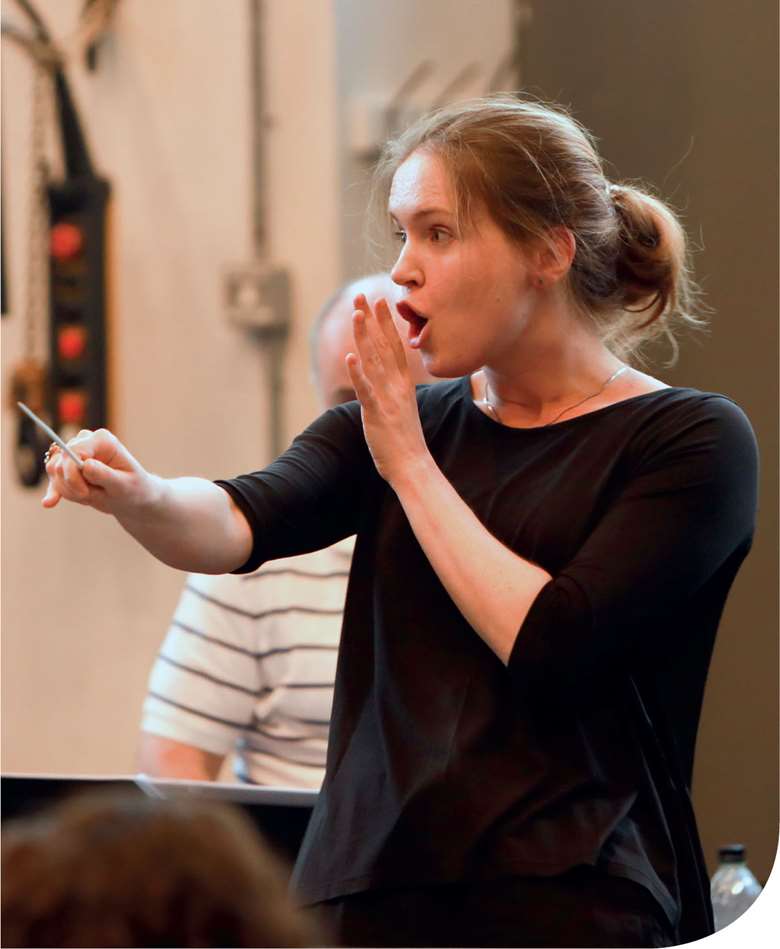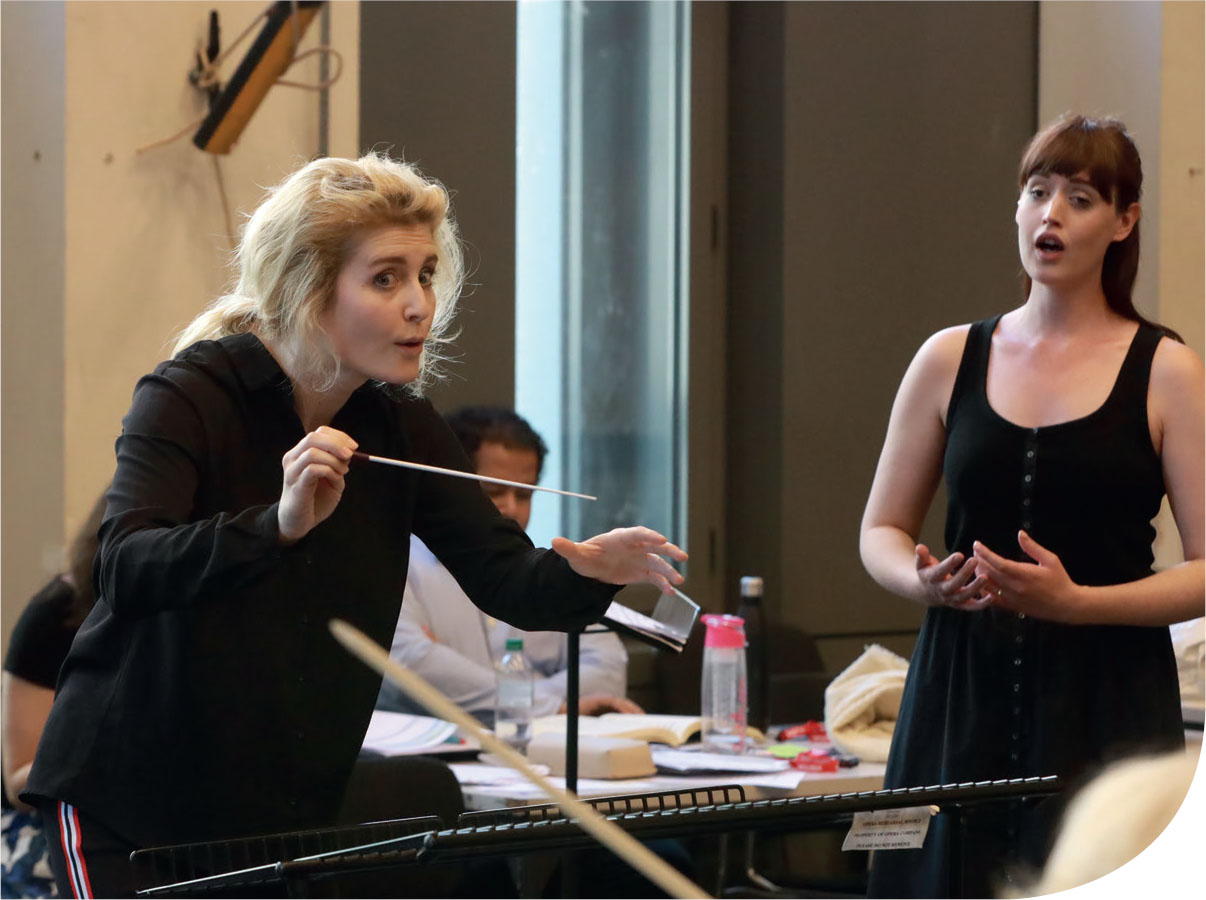Taking the lead: Training female conductors
Harry White
Wednesday, January 1, 2020
At a time when gender equality has never been more discussed, it is remarkable how few female conductors are visible in the music industry. Harry White profiles an initiative designed to change that.

In 2013, when Marin Alsop made her famous address at the Last Night of the Proms, she lamented, in reference to being the first woman to conduct the event, that there should still be ‘firsts for women’. She also used the occasion to express her hopes for ‘the seconds, thirds, fourths, fifths, hundreds’ of women who would follow in her footsteps.
Four years later, it was noted at the Association of British Orchestras (ABO) annual conference that only four of the 61 full member orchestras had female conductors in a titled role. Last year, the classical music news website Bachtrack found there were only five female conductors in its top 100 busiest conductors. Reflecting more recently, Alsop commented that ‘one of the biggest inhibitors to women gaining more success as conductors is there aren't enough opportunities to make errors. To be successful, you have to fail.’
Since 2016, the Royal Philharmonic Society (RPS) has been actively seeking to address this problem, creating such opportunities for over 200 women through its Women Conductors courses. Initialised by conductor Alice Farnham in 2014 as a series of workshops for female conductors, the RPS gave its support two years later, providing a platform for Farnham to increase reach and scope. As a result, many women, including teenagers in full-time education, are now being given the very opportunity Alsop deemed imperative.
Women Conductors programme
‘I co-founded Women Conductors at Morley College [in London] to encourage female music students to consider conducting as an option,’ says Farnham. ‘The stats clearly showed that young women were simply not seeing themselves in that position. Since then we have moved to the RPS and I have run many workshops. In 2014 the stats were appalling – a 1.5 percent gender ratio of women holding conducting positions in UK professional orchestras. Giving girls the mindset that this is potentially something they could do was very important.’
In 2017, James Murphy, then managing director of Southbank Sinfonia, launched a critical appraisal of gender equality in the conducting profession at the ABO annual conference. Now chief executive of the RPS, Murphy explains why the organisation seized the chance to lend its support to Farnham's initiative.
‘Our organisation was set up by a group of musicians back in 1813 who wanted people from all walks of life to feel that classical music was for them,’ he says. ‘That mandate hasn’t changed. So when it became evident that young women nationally weren't taking up conducting opportunities because they didn't see women thriving on the podium and didn't duly rate their prospects, it seemed a natural thing the RPS would support. I've met many people who say an initiative like this isn't needed, that those with talent will prevail in any circumstances. But I have met even more women, of all ages, who tell a different story.'
The Women Conductors programme consists of a series of educational ‘phases’, each targeted at demographics ranging from young students through to professionals. Phase 1 provides workshops up and down the UK for teenagers with no or very limited experience of conducting; it teaches them the basics of technique and provides opportunities to implement this by directing ensembles. In addition, girls are given classes in confidence and physicality with Alma Sheehan, head of drama at the Royal Welsh College of Music and Drama.
 (Image: Neil Gillespie)
(Image: Neil Gillespie)
‘My aim is to create a relaxed atmosphere in which the girls step away from limiting habits and obstacles, which can appear when nerves kick in,’ explains Sheehan. ‘They tap into each other’s energy, so even those who are somewhat shy at the start begin to trust themselves. We cover everything from correct breathing through to improvisation. I show the girls how making small changes in one's physicality can address performance anxiety, boost personal confidence and lower the volume on that annoying inner voice!'
Training for 12-15-year-old girls
One of the early Phase 1 workshops led by Farnham and Sheehan was held back in 2016 at Fitzwilliam College, University of Cambridge. Since then, the college has held workshops each year exclusively for state school educated girls from 12 to 15 years old. Catherine Groom, director of music at Fitzwilliam, explains the importance of reaching out.
‘My own mid-teens are 20 years ago now, and back then, certainly nobody would have told me I couldn’t conduct if I wanted to, but I don't think I ever really thought to ask,' she says. ‘But there perhaps wasn’t obvious automatic provision. When I went to university there were lots and lots of boys who'd had regular goes at conducting hymn practice and so on at their schools, just in the normal course of events, so it did feel difficult to compete with long-instilled confidence at that stage. I've got mixed views on ghettoising women's output, but I don't think that young women's conducting workshops, properly thought through, need be special pleading or ghettoisation. I think that, quite simply, they provide an experience that schools quite often still don't or can't. So, for older attendees with musical ambitions, the workshop can represent a relevant building block of study and experience, and for younger ones, simply normalising female leadership is good.'
Farnham believes these are ideal opportunities for girls to get the basic principles right. ‘It is a chance for teenage girls to dip their toes into the world of conducting,’ she says. ‘The fundamentals [that are taught] are to communicate your musical intentions. It's not simply a case of beating time but showing character and mood too.’
Following the most recent Phase 1 workshop, held at Trinity College Oxford in October 2019, Farnham notes that it was a change in demeanour among the girls that provided the greatest satisfaction. ‘On a personal level I enjoy bringing out the confidence and charisma that young women often have but find hard to show,’ she says. ‘When I was a teenager I would never have imagined that I would become a conductor. I was absolutely terrified at the idea of standing up in front of musicians and leading. The ability to do that must have been there, but it was hidden deep and it needed bringing out. It's such a pleasure to see young women coming through now with much more confidence and self-belief.’
Sheehan concurs. ‘The most rewarding moments come when those who arrived full of apprehension, clearly lacking in confidence, leave the course full of enthusiasm and a new-found freedom to self-express.’
Sixteen-year-old Emily Page, who completed a workshop earlier this year in Glasgow, is a powerful testament to this. ‘I was a complete beginner, struggling to conduct a simple piece at my choir,’ she explains. ‘With no formal training I had no clue where to start. But Alice’s teaching style is easy to follow, and I especially appreciated her detailed, personal tips for improving technique, which helped me see great progress in my own work. Alma's body language lessons boosted my confidence and helped me understand how even the way you hold yourself can send a message to the orchestra. It has given me so much confidence and I am going to seek out and embrace all conducting opportunities.'
While the landscape has undoubtedly changed since Alsop addressed the musical world in 2013, Farnham is keen to deter complacency. ‘The statistics have improved hugely, but the gender ratio is still very low – there is much to be done,’ she warns. ‘We want to reach out to teenagers and encourage them to step up. These workshops give them confidence at the very least and plant a seed which later down the line they may want to take up. A very positive thing is that I have noticed a big change in the attitude of teenage girls. Generally they do seem more confident, even in the way they hold themselves and their willingness to take risks. This is immensely encouraging.’
To find out more, visit:

